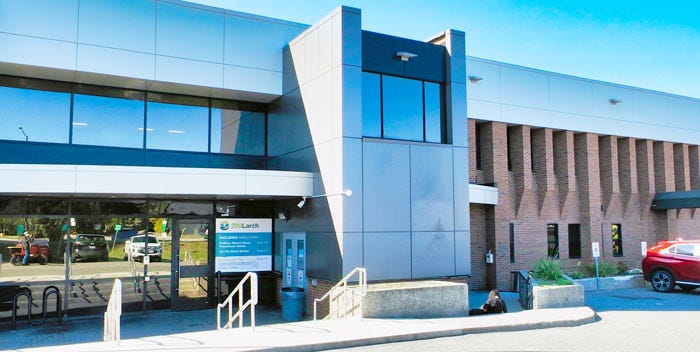Sudbury demolished a city-owned residental building.
In May 2024, Greater Sudbury’s city council published its Roadmap to End Homelessness. The goal is to provide a home to all of our the city’s homeless in the next 63 months, (the end of 2030).
24-hour Emergency Shelter Models
Through the community consultation, community partners and individuals with
lived experience were strongly supportive of a 24/7/365 emergency shelter model .
Three out of the four emergency shelter programs in Greater Sudbury operate overnight from 10 pm to 8 am.
Corrections:
1.) There are only three emergency shelters. (SACY closed a month before this
report was published.)
2.) The Cedar Place emergency shelter is open 24/7.
3.) Safe Harbour House is open 9:00 pm to 8:00 am.
Due to the current operating hours of these shelters, partners who provide supports to individuals accessing shelters have difficulty connecting with these individuals to provide services when the shelter closes. Individuals accessing shelters also often have medical conditions and/or disabilities and face challenges during the day when shelters are closed.
There may be opportunities to integrate emergency shelter beds with transitional housing beds to increase access to more supportive housing models.
(Page 24 of the Report.)
Transitioning Emergency Shelters
Off The Street Shelter at 200 Larch Street.
Opportunities should be explored to transition some existing emergency shelter models into 24-hour transitional housing units, wherever possible.
Evidence suggests there are no additional benefits to the provision of emergency accommodation besides “temporary, generally unpleasant, sometimes unsafe, respite from the elements and the provision of basic sustenance for people experiencing homelessness”.
(Page 45 of the Report)
Safe Harbour House
Recommendation
Transition the Elizabeth Fry Safe Harbour House shelter program to a 24/hour model and transition five of the emergency shelter beds to transitional housing beds.
Estimated cost
• $700,000/year for program costs.
(Appendix A, page 2)
Transitional Housing for Priority Populations
There are three priority populations, youth, women and those identify themselves as women, and the Indigenous.
a. Indigenous-Led Housing
Through the community consultation, recommendations included the development of culturally appropriate and safe Indigenous–led housing, including transitional and supportive housing. Evidence suggests that Indigenous-led programming improves holistic outcomes for Indigenous peoples and increases the uptake of programs among this population.
The development of a 40-unit supportive transitional housing program in partnership with an Indigenous-led program is recommended to meet the current need.
(Page 45 of the Report)
Recommendation:
Develop an Indigenous–led transitional housing program of up to 40 units. Implement a Request for Proposal to seek an Indigenous operator for the program.
Estimated cost
$14 million for capital.
$ 2.5 million/year for program costs.
$ 1 million/year for building maintenance.
$ 480,000/year for rent supplement.
Total project costs: $18 million for start-up plus continuous program costs.
(Page 2-3 Appendix A)
Note:
I assume that “continuous program costs” means annual operating costs.
b. Youth Housing
The community consultation recommended the development of transitional housing programs for youth. There are currently no transitional housing programs for youth available in Greater Sudbury.
The purchase of a purpose-built building to develop a 24-hour youth transitional housing program with emergency shelter beds for youth aged 16 to 24 is recommended, as evidence highlights transitional housing programs are linked with an increase in housing stability for youth experiencing homelessness.
(Page 45 of the Report)
Recommendation
Purchase a purpose-built building to develop a 24/hour youth transitional housing program with emergency shelter beds for youth aged 16-24.
Develop a Request for Proposal to seek an operator for the program.
Estimated cost
• $ 795,000 approximate cost of the building.
• $ 200,000 for repairs, renovations and set up.
• $1.4 million 24/hour program costs.
Total project costs: $2.4 million for start-up plus continuous program costs.
(Appendix A, page 2)
307 Cedar Street with a For Sale sign.
City looks to buy downtown building for shelter/transitional housing
by: Taylor Clarke, Sudbury.com
Greater Sudbury city council is expected to vote during a closed session on whether to purchase 307 Cedar St. for use as an emergency shelter and/or transitional housing.City council members have yet to look at the proposal, a city spokesperson clarified to Sudbury.com, noting that a draft bylaw for the building's $795,000 purchase (plus HST) was posted on the city’s website as part of the Sept. 17 meeting agenda in error.
The bylaw will re-emerge in the event city council members vote in favour of the purchase during a closed session of city council, either on Sept. 17 or during a meeting in October.
c. Other Priority Populations
There are several other priority populations that would benefit from purpose-built transitional or supportive housing, including seniors, women fleeing violence and newcomers. The City should continue to seek opportunities to partner with community groups to increase housing supply for priority populations.
(Page 46 of the Report)
Key performace Indicators
• Percentage of emergency shelters transitioned to a 24/7/365 model.
• Percentage of emergency shelters converted to transitional housing.
• Percentage of transitional housing units developed.






